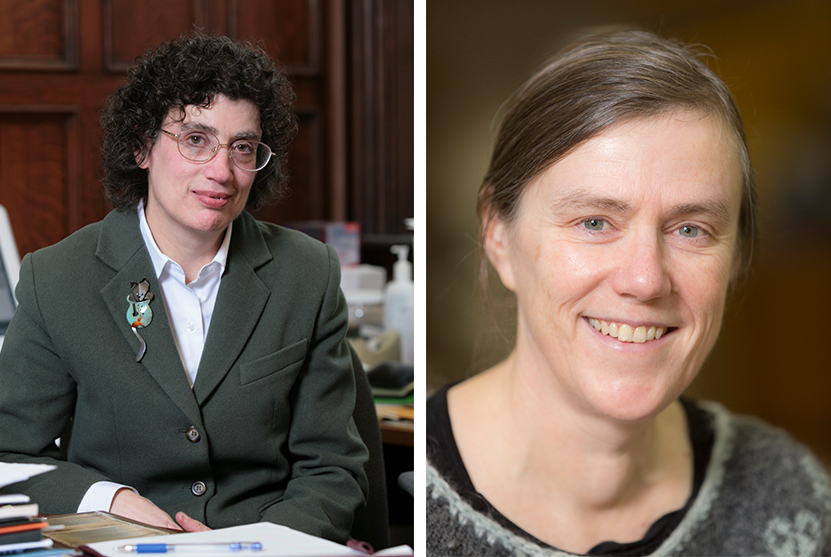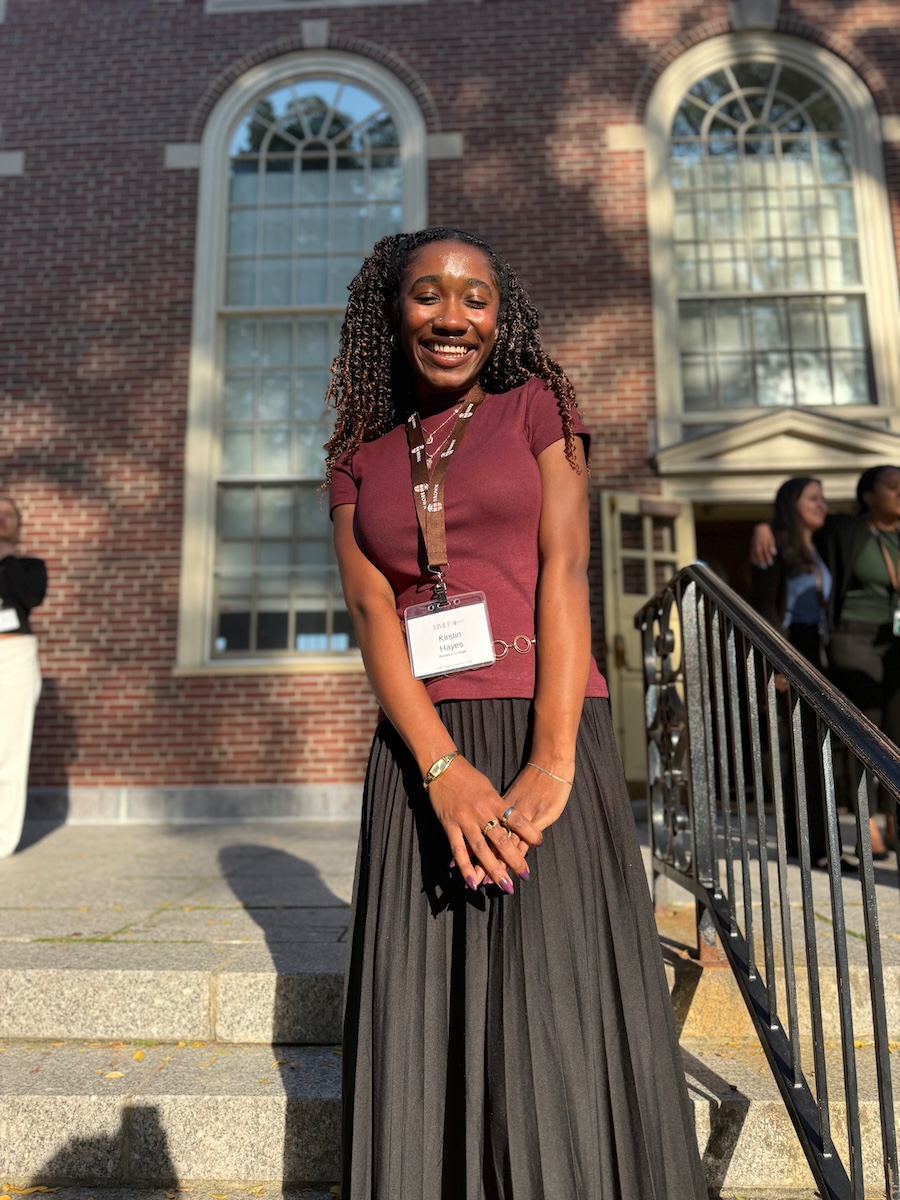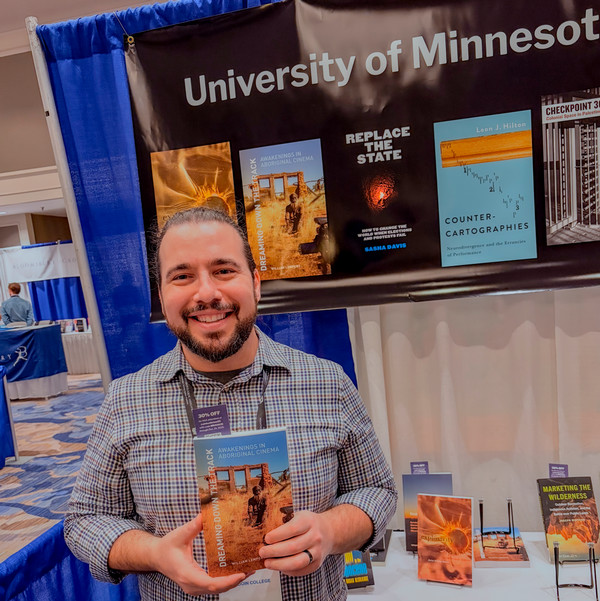Five Professors Appointed to Named Chairs
By Bowdoin NewsFive Bowdoin faculty members have been appointed to named chairs at the College in recognition of their achievements as scholars and educators.
The appointments, which are effective July 1, 2025, were announced by President Safa Zaki in a letter sent to each of the candidates at the recommendation of Senior Vice President and Dean for Academic Affairs Jennifer Scanlon and in consultation with senior members of the Committee on Appointments, Promotion, and Tenure.
“By celebrating and supporting the work of such distinguished faculty members, endowed chair appointments elevate the role of scholarly and artistic work at the College while also paying tribute to our generous donors,” said Scanlon. “We celebrate this group of five faculty, whose work within and across disciplines makes the College a richer place.”
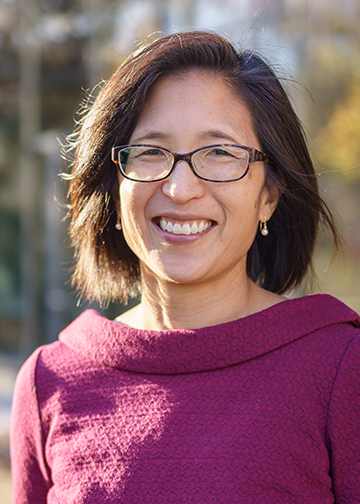
Connie Chiang has been named the Rusack Professor of History and Environmental Studies. A historian of the twentieth-century US focusing on the environmental and social history of the American West, Chiang has most recently concentrated on the intersection of Asian American and environmental history. “I strive to develop a more expansive narrative that goes beyond the exploitation of Asian American laborers and nature in an extractive economy,” said Chiang. “There are so many other rich stories—of Chinese immigrants evading exclusion laws in the dense forests and waterways of the Pacific Northwest or Japanese pictorial photographers scaling mountain peaks in the national parks—that show the complexities of the Asian American experience and the many ways that the natural world shaped their lives and helped them to push for inclusion.” Chiang's 2018 book, Nature Behind Barbed Wire: An Environmental History of the Japanese American Incarceration, was awarded the Agricultural History Society’s 2019 Theodore Saloutos Memorial Award for best book on agricultural history in the US. Last year, she edited and contributed to Nature Unfurled: Asian American Environmental Histories, which Julie Sze, author of Environmental Justice in a Moment of Danger, called “a stunning contribution to the fields of Asian American and environmental history.” Of her experience in the classroom, Chiang says, “It has been a great privilege to teach and learn from such intelligent, earnest, and engaged students and to create a space of discovery and exploration with them in the classroom. I enjoy how much they challenge me and help me to see the past anew while remaining critical and clear-eyed for the future.” Chiang earned her bachelor's degree in history and environmental studies at the University of California–Santa Barbara and her master's and PhD degrees in history at the University of Washington.
The Rusack Professorship in Environmental Studies was established by Alison Wrigley Rusack P’13 and Geoffrey Claflin Rusack ’78, P’13 In support of compensation, research and teaching expenses, and sabbatic leaves for one or more faculty member engaged in the field of environmental studies.
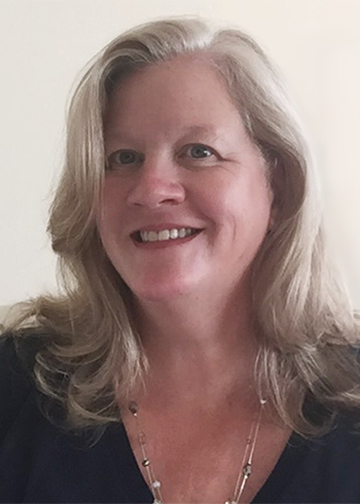
Pamela Fletcher has been named the Edith Cleaves Barry Professor of the History and Criticism of Art. This year, she published her latest book, The Victorian Painting of Modern Life, with Routledge, offering what the press has called “a comprehensive and tightly focused account of the emergence and flourishing of British modern-life paintings at midcentury.” Her other previous books include The Rise of the Modern Art Market in London, 1850–1939, which she coedited, and Narrating Modernity: The British Problem Picture, 1895–1914. Other new books by Fletcher are forthcoming, including three coedited volumes on The Victorian Artist and The Picture Business: The Inside Story of the Knoedler Gallery and the Origins of New York’s Art Market. The latter she coauthored with Anne Helmreich and is under contract with Getty Publications. Fletcher has coauthored a digital project called The London Gallery Project with David Israel and has published numerous articles in academic journals and contributed chapters to book manuscripts. Fletcher’s expertise includes Victorian and Edwardian painting, modernism, and the art market, and she teaches courses ranging from eighteenth-century art to contemporary art and theory, with a special focus on exhibition culture and British art. Fletcher earned her BA from Bowdoin College and her master’s degree and PhD in art history, with distinction, from Columbia University. She also earned a certificate in feminist theory from Columbia’s Institute for Research on Women and Gender. “As an alum and parent of a current student, Bowdoin is very dear to me for many reasons, but as I’ve made my career here, the most important one has been the fact that Bowdoin supports and fosters a climate where faculty can both undertake serious scholarly work and be deeply committed teachers,” she said.
The Edith Cleaves Barry Chair of the History and Criticism of Art was established in 1979 to support lectures, courses, and research in the Department of Art.
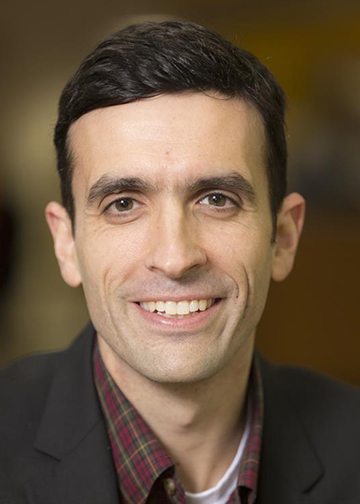
Michael Franz has been named the DeAlva Stanwood Alexander Professor of Government. A member of Bowdoin’s government and legal studies faculty since 2005, Franz has research interests that include campaign finance, political advertising, and interest groups. He teaches courses in campaigns, mass media, voting behavior, citizenship, and research methods. “With polarization between the parties at a fever pitch, elections are viewed by campaigns and by political leaders as more important than ever,” said Franz. “Because of that, I find great value in studying how campaigns decide which issues and priorities to highlight to voters, where and how campaigns chose to spend their money, and whether voters respond to some forms of campaigning over others.” Franz is codirector of the Wesleyan Media Project, which was established in 2010 to track advertising in federal elections. A prolific author, Franz has shared his insights in dozens of books, peer-reviewed journal articles, book chapters, and other publications and has been an election night Decision Desk consultant for ABC News since 2016. He is a longstanding member of the Campaign Finance Institute Academic Advisory Board and Project Vote Smart Key Vote Advisory Board for Maine. Franz earned his bachelor’s degree at Fairfield University and his master’s and doctorate in political science at the University of Wisconsin–Madison. “Often in my classes we discuss a lot of trends to make one feel pessimistic about the future of American democracy: rock-bottom trust levels in political and civic cultural institutions, record levels of partisan animosity, accelerating rates of misinformation, and rigid legislative gridlock,” Franz said. “But teaching at Bowdoin gives me hope for the country’s future. There remains a wellspring of good will and commitment to justice in the young people of America—I see that every day here at Bowdoin.”
The DeAlva Stanwood Alexander Professorship of Government was established in 1927 by Alexander’s second wife, the former Anne Lucille Bliss, in memory of her husband, a member of the Class of 1870.
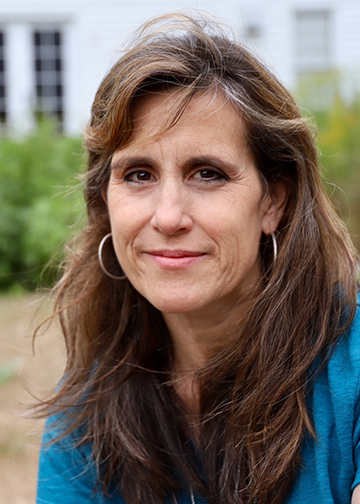
Page Herrlinger has been appointed Frank A. Munsey Professor of History. Herrlinger, who has been with Bowdoin’s history department since 1998, is also affiliated with the Department of Russian, East European, and Eurasian Studies, where she is currently chair. Herrlinger is a historian of modern Russia, particularly the intersection between religious belief and everyday life in the experience of ordinary people during the nineteenth and twentieth centuries, including the so-called godless Soviet period. Her most recent book, Holy Sobriety in Modern Russia: A Faith Healer and His Followers (Northern Illinois University Press, 2023), tells the story of a charismatic preacher and healer, “Brother Ioann” Churikov, and the thousands of Russians who found salvation through his teachings and prayers. Her current project, which Herrlinger describes as a study of “faith in extremity,” investigates how the religious beliefs and practices of individual Orthodox women influenced their response to moments of extreme and prolonged crisis in the past, including the First World War, the Bolshevik Revolution, and the Famines of 1921–1922 and 1932–1933. “I am interested both in the ways that faith helped ordinary women navigate extreme conditions, such as violence, personal loss, hunger, material deprivation, and terror, and in the impact those same challenges had on their spiritual lives and religious and moral sensibilities,” she said. Herrlinger has had to delve into a rich online archive to research this project, she explained, because physical access to files in Russia has been impossible since the full-scale invasion of Ukraine in 2022. “At the same time, however,” said Herrlinger, “the Kremlin’s use of Orthodoxy to justify its aggression as a ‘holy war’ has only strengthened my commitment to highlighting diverse voices from Russia’s religious past.” Herrlinger earned her bachelor’s degree at Yale University and her master’s and doctorate in history at the University of California–Berkeley.
The Frank A. Munsey Professorship of History was established in 1922 by Munsey, a 1919 honorary degree recipient and College benefactor.
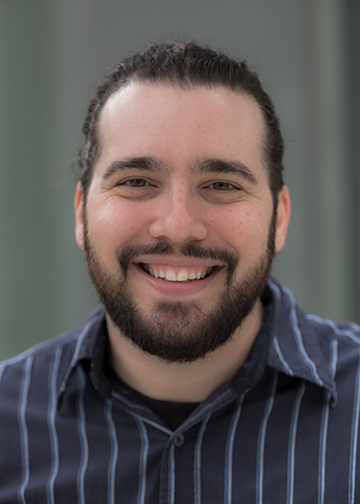
Willi Lempert has been named the inaugural Osterweis Family Associate Professor of Anthropology for a term of five years. Arriving at Bowdoin in 2018, Lempert has focused much of his research on the issues facing Aboriginal communities and the implications of how they are represented. Based on years of ethnographic fieldwork with Indigenous media organizations in the Kimberley region of Northwestern Australia, his first book, Dreaming Down the Track: Awakenings in Aboriginal Cinema (University of Minnesota Press, 2025), traces the dynamic process of filmmaking as a critical mode of political transformation. Lempert’s emerging research engages Aboriginal sign language and hearing loss, as well as outer space colonialism. As he describes, “I am a cultural anthropologist whose work lies at the intersection of indigeneity, media making, and futurity. My scholarly projects are united by a focus on the implications of Aboriginal Australian representations for the future of their communities and the broader world. I am driven by the larger goal of facilitating collaborative partnerships that prioritize community-defined protocols and outcomes, and that aim to help transform how Indigenous futures are imagined by scholars, policymakers, and publics.” He notes that the process of teaching and learning with students has deeply inspired and expanded his research thinking and practices, including in collaborative community projects such as the Pejepscot Portage Mapping Project in Brunswick. “I continue to be humbled by the intellectual and moral depth of my colleagues and students, as well as their commitment to the highest ideals of education,” he says. Lempert earned his bachelor’s degree at Miami University, his master’s in cultural anthropology at the University of Denver, and his doctorate in cultural anthropology at the University of Colorado Boulder.
The Osterweis Family Professorship is a new chair, established this year by trustee emeritus John S. Osterweis, a member of the Class of 1964, as part of the From Here campaign in support of compensation, research and teaching expenses, and sabbatic leaves for one or more faculty members at any rank, in any discipline.
